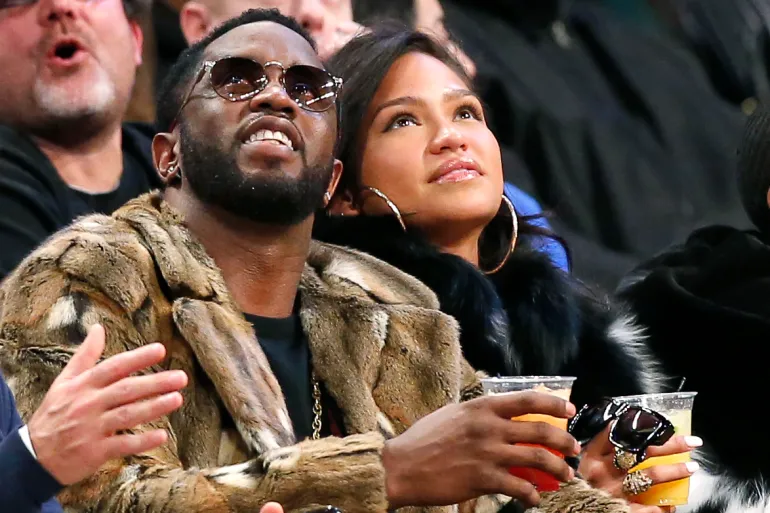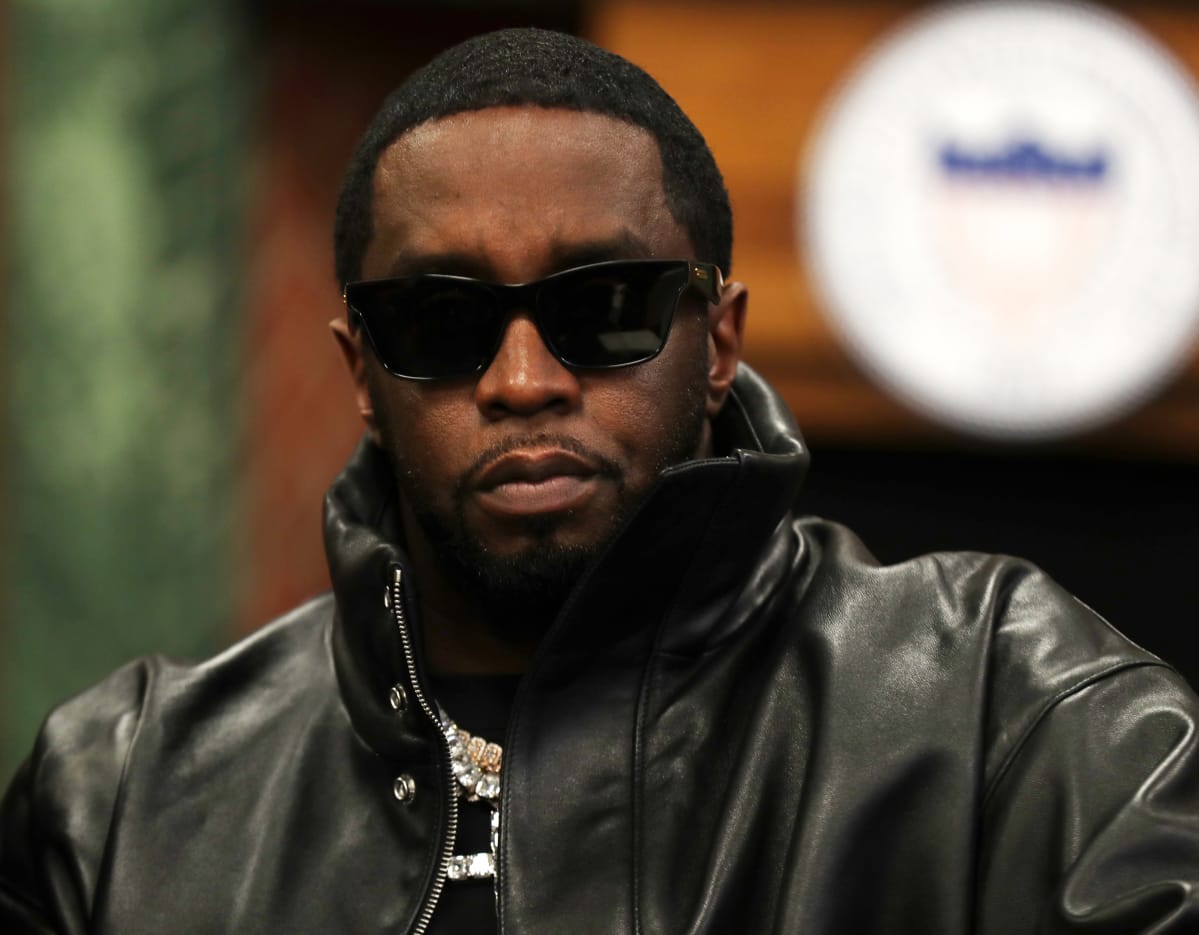In May 2025, Sean “Diddy” Combs—music mogul, entrepreneur, and cultural icon—stood trial in Lower Manhattan, facing explosive allegations that he orchestrated a decades-long sex-trafficking and racketeering operation. Over the course of eight emotionally charged weeks, the courtroom became a stage for harrowing testimony, media frenzy, and public reckoning.
Then, on July 2, the jury delivered a mixed verdict: Diddy was acquitted of the most serious federal charges, yet found guilty on two counts of transporting individuals to engage in prostitution, a violation of the Mann Act. In this rewind, we break down how the sex-trafficking trial began, the key evidence that shaped the case, the impact of the verdict, what’s next in terms of sentencing—and where Diddy stands now in the court of public opinion.
Here’s what we know about Diddy’s trial, including sex-trafficking and racketeering, so far…
Case Background & Charges
The legal saga formally began on September 16, 2024, when a federal grand jury indicted Sean Combs on five serious counts: racketeering conspiracy, two counts of sex trafficking by force or coercion, and two counts of transportation to engage in prostitution. According to prosecutors, Combs had allegedly spent two decades orchestrating drug-fueled “freak-offs”—exclusive, underground parties involving women and male escorts—through a calculated mix of money, manipulation, and violence. He pleaded not guilty to all charges and was ordered held without bail at Brooklyn’s Metropolitan Detention Center. Despite multiple attempts to secure bond or delay proceedings, the court remained firm, setting trial for May 2025.
Trial Highlights & Emotional Testimony

Opening statements kicked off in May, with prosecutors laying out a disturbing portrait of coercion, abuse, and control. Central to their case were testimonies from former partners—most notably Cassie Ventura, who detailed years of manipulation and described a 2016 assault captured on hotel surveillance footage. The prosecution also called on ex-associates like Kid Cudi and Dawn Richard, both of whom accused Combs of using intimidation and pressure to maintain control. Altogether, prosecutors framed these accounts as evidence of a long-running criminal enterprise.

The defense pushed back sharply, framing the accusations as instances of domestic strife rather than trafficking or coercion. They argued that the relationships were consensual, pointing to messages and exchanges that suggested mutual intent. Notably, Combs did not take the stand—a decision the defense portrayed as strategic, but which became a focal point for speculation. After testimony concluded on June 24, jurors deliberated for three days before returning a split verdict.
Verdict: Partial Victory, Partial Defeat

On July 2, the jury delivered a split verdict. Combs was acquitted on all racketeering and sex trafficking charges, with jurors appearing to side with the defense’s assertion that the government had failed to prove coercion. However, he was convicted on two counts of transportation to engage in prostitution, acknowledging that he facilitated interstate travel for sex acts, though not under the harsher framework of trafficking statutes.
Following the verdict, Judge Arun Subramanian denied Combs’s bail request, citing the gravity of the convictions and his history of admitted violent behavior. Sentencing was set for October 3, 2025, with Combs expected to receive credit for time already served—just over one year in federal custody.
Sentencing Outlook & Legal Stakes

Though Combs was convicted on lesser charges, each count still carries a maximum sentence of 10 years, placing him at risk of up to 20 years behind bars. However, the final sentence is likely to be far shorter. According to CBS News, prosecutors have requested a prison term of 51 to 63 months (approximately 4¼ to 5 years), while the defense has argued for a significantly lighter sentence of 21 to 27 months. Legal analysts note that Judge Subramanian has wide latitude in sentencing, but many expect the final term to fall somewhere in the midrange—likely between 2½ to 3½ years.
Public Response & Reputation Fallout

The national reaction has been swift—and volatile. Many critics argue that the verdict underscores deep systemic failures in holding powerful men accountable, warning that it signals a troubling post–#MeToo backslide in elite prosecution. The backlash has reverberated across civic and media circles alike. Commentators have expressed outrage that, despite graphic testimony and corroborating evidence, Combs was acquitted of all racketeering and trafficking charges.
The damage to his public persona, however, may prove irreversible. PR analysts warn that the verdict, though mixed, has shattered the polished veneer Combs once cultivated. As one crisis management firm bluntly put it, his image is now “in society’s septic tank”—a reference to the lasting reputational fallout even without a full conviction. Adding fuel to the fire, longtime rival 50 Cent has capitalized on the moment, posting AI-generated memes and salacious commentary that have turned the courtroom drama into viral content. In the end, Combs’s legacy may be judged as much by cultural perception as by legal outcome.
What Diddy Is Doing Now Following the Sex-trafficking trial
Combs remains behind bars at Brooklyn’s Metropolitan Detention Center, where he is currently enrolled in a series of treatment programs targeting substance use, domestic violence, and mental health. His legal team has framed this as a proactive step—a potential mitigating factor ahead of sentencing. They argue that his participation reflects not only a willingness to confront past behavior but also a broader signal of accountability and a pathway to rehabilitation. For now, he continues to appear at court hearings remotely, as both prosecution and defense prepare to submit their final filings in September, ahead of the October 3 sentencing date.
Final Take & What’s Next
The verdict marks a complicated chapter in Combs’s story. While he sidestepped the most severe charges—and the possibility of life behind bars—he remains legally exposed. His upcoming sentencing on October 3 will be pivotal, shaping whether the public views him as a man seeking redemption or as someone permanently disgraced. Compounding his troubles, more than 50 civil lawsuits are still pending. These cases, many alleging further abuse, promise to keep him entangled in the legal system for the foreseeable future.
Beyond Combs himself, the trial has become a high-stakes cultural and legal flashpoint. At its core, it confronts urgent questions around celebrity accountability, the evolving interpretation of sexual coercion laws, and the reach of federal power in private spheres. As such, his case may well become a reference point for how future courts—and the public—approach allegations of intimate partner violence among the powerful.
Featured image: Shareif Ziyadat/Getty Images
For the latest in fashion, lifestyle, and culture, follow us on Instagram @stylerave
